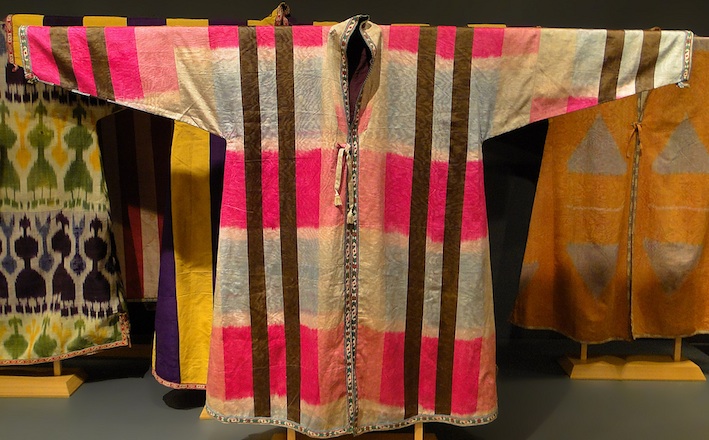Commentary on Psalm 23
Every preacher needs at least two sermons on Psalm 23: one for funerals, and another for ordinary time. Because Psalm 23 is so familiar, we’ll look at it in the particular framework of the lectionary texts for the eighteenth Sunday after Pentecost.
Each of these texts show God as the giver, and people responding. This theme can move in a major or minor key, depending on the situation. On the gentlest side of the spectrum is the Epistle lesson.
In Philippians 4:1-9, believers are told: “do not worry, but … let your requests be made known to God.” Paul encourages believers to respond to God’s mercy by dwelling on what is good and worthy of praise. We are invited to “sit with” the mercy of God. And as we do so, “the peace of God, which surpasses all understanding” will keep our hearts and minds in Christ Jesus. Paul wants the faithful to let our hearts and minds be shaped by God’s goodness.
Moving one step over on the scale is Psalm 23. Here a feast is spread in the presence of enemies and death, evil and fear. The response of the Psalmist is trust.
Next comes Isaiah 25:1-9. Here too God spreads “a feast of rich food” for all people. God provides refuge, shelter and shade. But this mercy is shown to a people defeated by ruthless enemies. Death and tears are real but God wipes them away. The response is praise: “let us be glad and rejoice in his salvation.”
Today’s Gospel lesson sits at the most disturbing end of the spectrum. Jesus’ parable of the King’s wedding feast (Matthew 22:1-14) includes murder, mayhem and vengeance. Just when it seems like the story is going to get better, a wedding guest is cast into the outer darkness for violating the King’s dress code. Yet this text also begins with a king who gives a feast, but people respond with contempt.
For preachers who choose to focus on Psalm 23 on this particular Sunday, the combination of texts suggests at least two things. First, that God gives peace in the midst of conflict, life in the shadow of death. Second, the shepherd calls us to follow in a world where God’s mercy is often scorned. Walking in paths of righteousness for the sake of God’s name will put us at odds with the rest of the world.
We now turn to Psalm 23. The first verse states the theme, and the rest of the Psalm unfolds it. As James Luther Mays notes, the opening line makes a positive statement about God: “the Lord is my shepherd”; and a negative statement “I shall not want” (I lack for nothing).1
That response — I shall not want — immediately puts us at odds with our culture, in which we are conditioned to be consumers who always lack something. If people lived by Psalm 23 (lacking nothing because the Lord is their shepherd) our economy would collapse. To live by Psalm 23 would mean ignoring the constant barrage of messages saying, “you are unhappy, you need more stuff.” Psalm 23 resets that consumer mentality.
It also resets the hyper-activity of our lives, for the shepherd “makes me lie down in green pastures.” We can stop running. Beside the still waters the shepherd “restores my soul.” As one commentator put it, he restores my soul means “he gives me back my life.2
On any given Sunday some people come to church to have their souls restored — to get their lives back. Even pastors might feel this way. And so the Psalm invites us to savor and enjoy God’s gifts: food for body and soul, and a good path in life (verse 3).
Central to the Psalm is “I fear no evil, for you are with me” (verse 4). Evil is real, but God’s presence remains with us even in “in the valley of the shadow of death.” (The NRSV translates this “the darkest valley” but “the valley of the shadow of death” is more poetic and more powerful, calling to mind Job 10:21-22). Concerning the “rod and staff” (verse 4) some may ask whether these are two separate tools of the shepherd, or one tool with two functions. It really doesn’t matter, since either way, the shepherd protects and leads.
In verse 5, the metaphor shifts from that of the shepherd to the generous host. But here too, what counts is that God is provides and protects. How surprising that the table spread in the presence of enemies! It is hard to relax and be fed in their presence. Yet God invites us to the table, come what may and come who may. The Psalm promises that God is with us, anointing our heads with oil. Only a highly honored guest would have been anointed with oil. And the overflowing cup signifies the abundance of God’s love.
In verse 6, goodness and mercy do not just “follow.” They pursue. According to the New Interpreter’s Bible, the Hebrew verb…has the more active sense of “pursue.” God is coming after the psalmist. The bad news is, we have enemies. The good news is, God has our back. Ordinarily in the psalms, it is precisely the enemies who “pursue” the psalmist….Here the enemies are present but have been rendered harmless, while God is in active pursuit.”3
Finally we come to “the house of the Lord” (verse 6) where the intimate, personal experience of trust in God leads to the community of faith.
Hymn: ELW 782 “My Shepherd, You Supply My Need.”
Notes:
1 James Luther Mays, Psalms, Interpretation (Louisville: Westminster John Knox, 1994), 117.
2 Adapted from George A.F. Knight, Psalms (Louisville: Westminster John Knox, 1982), 116.
3 New Interpreter’s Bible, vol. IV (Nashville: Abingdon, 1996), 768-769.


October 12, 2014